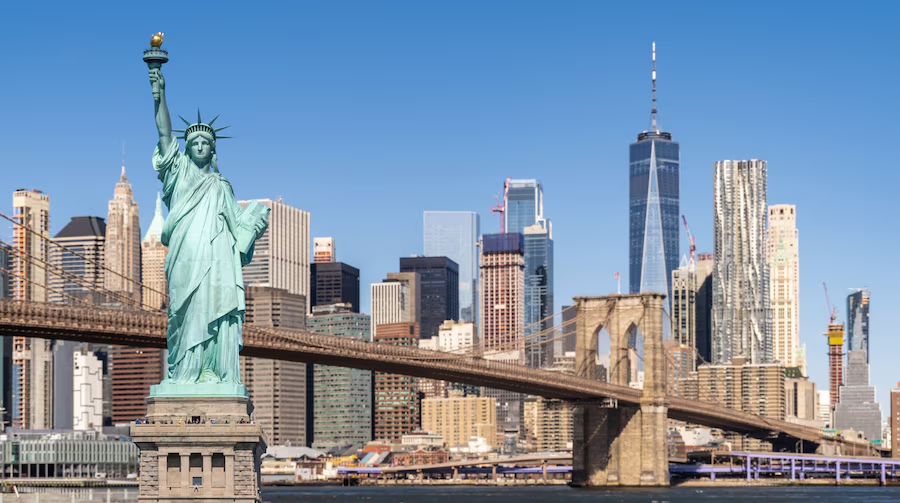Impact of Proposed H-1B Visa Changes: What Indian Applicants Need to Know

In a pivotal development set to reshape opportunities for Indian professionals in the United States, the United States Citizenship and Immigration Services (USCIS) is gearing up to announce significant revisions to H-1B visa regulations. These proposed changes, slated for release on July 8, 2024, mark a critical juncture for both employers and skilled workers from India, triggering a period of public commentary before potential implementation.

Overview of Proposed Changes
The impending regulatory updates include the introduction of new fees aimed at extending H-1B and L-1 visas. Specifically, a $4,000 fee for H-1B visa extensions and a $4,500 fee for L-1 visa extensions are proposed, aligning with existing fees under the 9/11 Response and Biometric Entry-Exit Fee structure.
These fees currently apply primarily to initial visa petitions and changes in employer sponsorship but may now extend to visa extensions, imposing additional financial burdens on visa holders and sponsoring employers alike.
Initially proposed by USCIS on October 23 of the previous year, the new rules are currently undergoing a 60-day commentary phase. Insights from Forbes suggest that finalization by the Biden administration may occur by year-end or following the upcoming election cycle.
These changes have the potential to disrupt the plans of many Indian H-1B visa holders and prospective applicants, impacting their aspirations to live and work in the US.

Key Points of Contention
One of the most contentious aspects of the proposed regulations is the redefinition of what qualifies as a specialty occupation eligible for H-1B status. Under the new guidelines, job roles must specifically necessitate degrees closely aligned with the job’s specialized requirements.
This shift reflects previous policies under the Trump administration, which faced legal challenges over concerns about excluding skilled international professionals. For instance, individuals holding degrees in fields like business administration might face reclassification under a ‘general degree’ category, potentially jeopardizing their eligibility for specialty occupation status.
Additionally, the Department of Homeland Security (DHS) is considering imposing significant fees on employers with substantial numbers of H-1B and L-1 visa holders, particularly those with over 50% of their workforce under these visa categories.
These visas are instrumental for US companies seeking to import specialized talent to fill crucial roles that are challenging to source domestically, underscoring their vital role in bolstering the American job market’s competitiveness and innovation.

frequently asked questions (FAQs) related to H-1B visa regulations and implications for Indian applicants:
What are the upcoming changes to H-1B visa regulations?
The United States Citizenship and Immigration Services (USCIS) is proposing new rules that include extension fees and stricter criteria for specialty occupations.
When will the new H-1B visa rules be implemented?
The regulations are expected to be finalized after a public commentary period, potentially by the end of the year following review and feedback.
How will the extension fees impact H-1B visa holders and employers?
Extension fees of $4,000 for H-1B visas and $4,500 for L-1 visas could increase costs for both visa holders and employers maintaining foreign talent.
What is the specialty occupation redefinition under the new rules?
The redefinition requires specific degrees closely related to the job’s specialty, potentially affecting roles previously considered under broader qualifications.
Who will be most affected by the new H-1B visa regulations?
Indian professionals constitute a significant portion of H-1B visa holders and may face challenges if their degrees are not deemed sufficiently specialized.
Why is USCIS proposing these changes to H-1B visa rules?
The changes aim to prioritize domestic hiring, discourage over-reliance on foreign labor, and ensure visa holders meet stringent occupational requirements.
How can Indian applicants prepare for these changes?
Applicants should stay informed about the latest updates, consult immigration professionals, and ensure their qualifications align with the new specialty occupation criteria.
What should employers do to comply with the new regulations?
Employers should assess their workforce composition, anticipate additional costs, and consider alternative recruitment strategies to mitigate impacts.
Are there exemptions or waivers for the extension fees?
USCIS has not indicated exemptions for the proposed extension fees, which are intended to apply uniformly across applicable visa categories.
Will there be additional fees for visa transfers or changes in employment under the new rules?
Currently, the proposed fees apply primarily to extensions, with potential future implications for other visa processes depending on USCIS directives.
What should visa holders do if they face challenges under the new rules?
Visa holders should seek legal counsel, understand their options for compliance or appeals, and monitor USCIS announcements for further guidance.
How can employers demonstrate the necessity of H-1B visa holders in specialty occupations?
Employers should provide comprehensive job descriptions, demonstrate efforts to recruit domestically, and substantiate the unique skills foreign workers bring to their operations.
What impact will these changes have on the tech industry in the US?
The tech industry, heavily reliant on skilled international talent, may experience disruptions in recruitment strategies and operational costs under the proposed rules.
Are there advocacy efforts against the proposed H-1B visa changes?
Various stakeholders, including industry associations and immigration advocacy groups, are engaging in advocacy efforts to influence policy outcomes and mitigate potential adverse effects.
Where can I find reliable updates and resources on H-1B visa regulations?
Official USCIS communications, reputable immigration law firms, and industry news outlets provide valuable updates and guidance on navigating the evolving landscape of H-1B visas.
Conclusion: As USCIS moves closer to finalizing the proposed H-1B visa regulations, Indian applicants, employers, and stakeholders are advised to stay vigilant and proactive. The potential impacts on visa processes, costs, and occupational eligibility underline the need for informed planning and strategic decision-making.
Disclaimer:
The information provided in this blog post is for informational purposes only and should not be construed as legal advice. Immigration policies and regulations are subject to change, and readers are encouraged to consult with qualified immigration professionals or refer to official USCIS communications for the latest updates and guidance on H-1B visa regulations.
Source: timesofindia.indiatimes.com
Also read:
- Portugal Tourist Visa: Your Ultimate Guide to Visiting Portugal
- Study in the UK Without IELTS – Secure Your Visa Even After a 5-Year Study Gap!
- Rs 8,000 Crore Loss Due to Canada’s Foreign Student Cap – What It Means for Indian Colleges and Students”
- ✨ Dreaming of Visiting the UK Without Travel History? Here’s How You Can Make It a Reality!
- Indian IT Firms Brace for Major H-1B Visa Overhaul: How Will It Impact the Industry?






